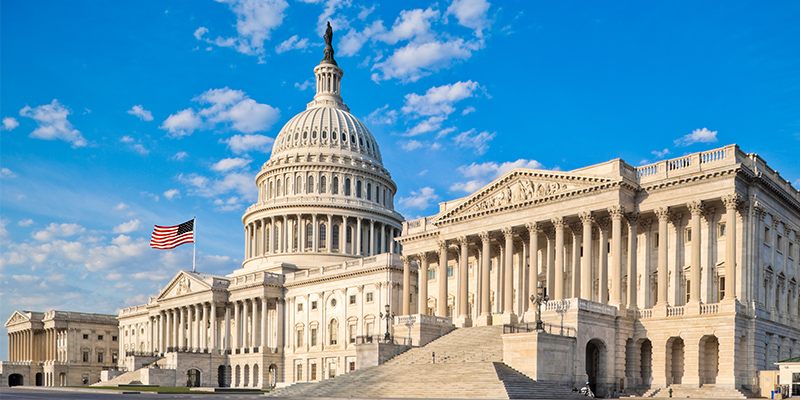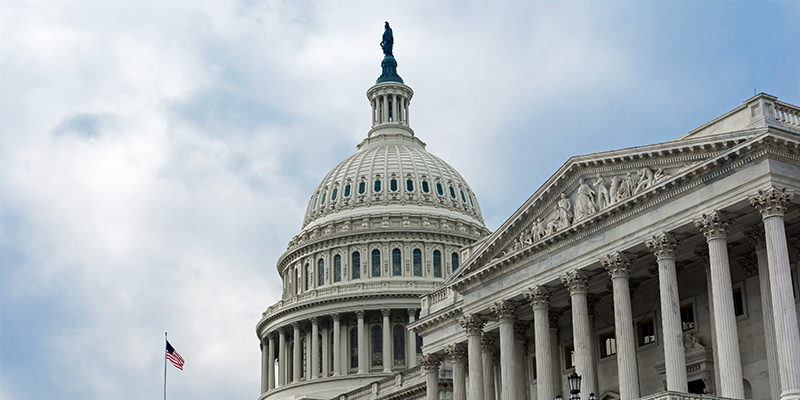Election year 2020 is beginning in uncertainty.
The House of Representatives has impeached President Donald Trump, and the 100 members of the Senate will serve as the jurors in his impeachment trial. But it’s not clear when that trial will begin, or what format it will take. Meanwhile, lawmakers are debating what steps, if any, to take following the assassination of Iranian General Qasem Soleimani last week. And, of course, there’s a presidential election underway, with Democratic debates and primaries going on through the spring and political conventions set for this summer.
But amid the confusion, lawmakers still have bills to pass that would help clarify the legislative landscape for the commercial real estate industry.
As a positive first step, the Senate is moving toward passing the U.S-Mexico-Canada trade agreement, a pact NAIOP lobbied for. The Senate Finance Committee waved through USMCA on a 25-3 vote this week, sending the agreement to the floor for a vote by the full Senate.
USMCA passed the House last month, and senators are considering the exact same language contained in the House bill. The Senate vote could take place by the end of the week, or it could be delayed if the impeachment process kicks into gear. But in any event, the Senate is expected to pass USMCA easily, and Trump would then sign it, giving a boost to free trade throughout North America.
Meanwhile, lawmakers could take up several other measures. For example, they should enact the bipartisan Energy Savings and Industrial Competitiveness Act of 2019 (S. 2137, H.R. 3962). It’s better known as Portman-Shaheen, after its sponsors Senators Rob Portman (R-OH) and Jeanne Shaheen (D-NH).
This law takes a sensible approach to encourage energy efficiency, but it would not impose new mandates. Instead, it would encourage states to update energy efficiency codes while including realistic payback schedules and requirements that the provisions be technologically and economically feasible. Portman-Shaheen would also improve and enhance the information collected by the EPA’s Energy Star Portfolio Manager. Dozens of states, cities, and municipalities require building owners to use Portfolio Manager to comply with local energy efficiency ordinances, so it makes sense to enhance that program.
On the tax front, lawmakers should move quickly to pass the Restoring Investment in Improvements Act (S. 803, H.R. 1869). This bipartisan legislation is backed by a majority of lawmakers and would fix a mistake that was included in the 2017 Tax Cuts and Jobs Act.
As part of that bill, Congress sought to incentivize increased capital investment in buildings by providing shorter depreciation periods for Qualified Improvement Property. Instead, because of a typo, the QIP depreciation schedule is nearly 40 years longer than was intended. The Restoring Investment in Improvements Act would fix this glitch.
Lawmakers should also recognize that economic incentives offered by state and local public entities often play a critical role in ensuring the economic viability of a development project, particularly in underserved communities. Such incentives have long been treated as tax-free contributions to capital under Section 118 of the federal tax code. However, these incentives are now being taxed upfront, which reduces their value and forces local governments to put in more to make up the difference. NAIOP supports bipartisan legislation (S. 2942) to restore the prior tax treatment of these incentives, and ensure that local investment dollars are maximized and directed to much-needed development projects.
Finally, lawmakers should deal with the fact that the United States is now trailing most major industrialized countries on the quality of its infrastructure. Our country needs to increase private sector participation in the financing of major infrastructure projects if we want to maintain our long-term economic competitiveness.
Expanding the use of Public-Private partnerships (P3s) is one idea that could provide new and flexible funding sources to offset the cost of these investments to taxpayers. Repealing the Foreign Investment in Real Property Tax Act of 1980 (FIRPTA), a provision that unfairly targets foreign investments in real estate and infrastructure, would also provide a much-needed source of capital for infrastructure projects. The bipartisan Invest in America Act (H.R. 2210) would repeal FIRPTA and eliminate this unnecessary barrier.
It’s unclear how the legislative year will develop, and there could be a Senate trial underway when NAIOP members visit the Hill during the Chapter Leadership and Legislative Retreat on Wednesday, February 5, to voice their concerns about issues important to our industry. But despite the focus on impeachment and the presidential race, we will be reminding our elected officials that our industry is an important part of a growing economy, and our issues should be addressed.














